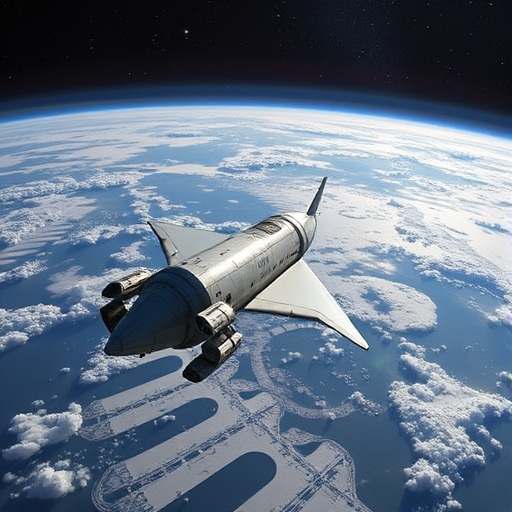The concept of space tourism has moved from science fiction to a growing industry that is poised to revolutionize travel and exploration. With the advent of commercial space travel, a new era of exploration is on the horizon. Companies like SpaceX, Blue Origin, and Virgin Galactic are at the forefront of making space travel accessible to private citizens, not just astronauts. So, what can we expect from the future of space tourism? Here’s an overview of what is likely to unfold in the coming years:
1. Commercial Space Travel Becoming More Affordable
In the early days of space tourism, the cost was astronomically high, making it accessible only to the wealthiest individuals. However, as technology advances and competition among private space companies grows, prices are expected to decrease. Initially, space tourism tickets can cost hundreds of thousands to millions of dollars, but as the industry matures, the cost is likely to fall, opening up space travel to more people.
- Why it matters: Lower costs would make space tourism more accessible, potentially allowing middle-class citizens to participate in space tourism experiences, thereby expanding the market and creating new opportunities for growth.
2. Suborbital Flights and Zero Gravity Experiences
The most immediate form of space tourism is suborbital flights, where passengers briefly leave Earth’s atmosphere to experience weightlessness and see the curvature of the Earth before returning to the planet’s surface. Companies like Virgin Galactic and Blue Origin are already offering or testing suborbital flights, where passengers can experience a few minutes of zero-gravity, as well as spectacular views of space.
- Why it matters: Suborbital flights are seen as the first step for commercial space tourism, and they offer a unique experience without the complexities and high costs of full orbital missions. These short trips can offer an unforgettable experience, which could eventually become a more mainstream luxury travel experience.
3. Space Hotels and Extended Stays in Orbit
Looking further ahead, the development of space hotels is a thrilling prospect. These will likely be in low Earth orbit (LEO) and offer long-term stays with various amenities. Such hotels could provide an extraordinary experience of living in space for days or even weeks, with the ability to view Earth from a different perspective, experience microgravity, and engage in activities that are impossible on Earth.
- Why it matters: Space hotels would make space travel much more immersive and appealing to tourists who are looking for a unique, once-in-a-lifetime experience. With enough infrastructure, space hotels could serve as hubs for science, leisure, and tourism, combining the thrill of space with hospitality.
4. Lunar Tourism and Beyond
Looking further into the future, lunar tourism is becoming a realistic possibility. SpaceX, with its Starship program, has plans for trips to the Moon and beyond. This could involve taking tourists on a journey around the Moon, allowing them to view the lunar surface up close, and possibly even land on the Moon. Furthermore, Mars missions could eventually become a part of the space tourism industry, with companies like SpaceX aiming for human missions to Mars in the 2030s.
- Why it matters: Lunar and Martian tourism would take the concept of space tourism to a whole new level. These longer and more complex trips would allow tourists to explore our solar system, offering unparalleled experiences of adventure, discovery, and the awe of interplanetary travel.
5. Space Tourism for Scientific Research
In the future, space tourism could play a role in advancing scientific research. Tourists could participate in experiments while aboard space stations or while traveling to the Moon or Mars. These tourists could be involved in studying the effects of space travel on the human body, conducting zero-gravity experiments, or exploring the environment of other planets.
- Why it matters: This shift would make space tourism not only a recreational activity but also a tool for advancing scientific knowledge and exploration. By merging leisure and research, space tourism could contribute to space exploration in ways previously unimagined.
6. Environmental and Ethical Considerations
As space tourism grows, so too will concerns about its environmental and ethical implications. The energy consumption and carbon footprint of launching spacecraft into space are substantial, and there are discussions about how to make space travel more sustainable. Companies will likely need to innovate to minimize the environmental impact of space launches, such as developing reusable spacecraft and reducing pollution from rocket launches.
- Why it matters: Addressing these concerns will be critical to the long-term success of space tourism. Companies will need to strike a balance between making space travel accessible and ensuring that it does not harm the environment, making sustainable practices a key factor in the industry’s future.
7. Space Tourism and New Technologies
The growth of space tourism will drive the development of cutting-edge technologies. These include advancements in propulsion systems, spacecraft design, life-support systems, and artificial gravity mechanisms. Space tourism companies will likely invest heavily in R&D to improve the safety, comfort, and experience of space travel.
- Why it matters: As new technologies emerge, the cost of space travel could drop, and the overall experience could improve significantly. New technologies could also make space travel safer and more efficient, encouraging a wider demographic to consider space tourism as a viable option.
8. The Rise of Space Travel as a Luxury Industry
Initially, space tourism will likely remain a luxury industry. The opportunity to travel to space, whether for a brief suborbital flight or an extended stay at a space hotel, will be a high-end experience for those with substantial financial means. Exclusive space tours, private spacecraft rentals, and VIP experiences could create an entirely new luxury market.
- Why it matters: This exclusivity, combined with the allure of space, will attract wealthy individuals and celebrities, thus helping to fund the growth of the space tourism industry. Over time, the luxury nature of space travel may evolve into a broader, more accessible market.
9. Space Tourism as an Educational Experience
Space tourism has the potential to inspire and educate the next generation of explorers, scientists, and engineers. By offering educational opportunities, such as zero-gravity experiments, astronauts’ guidance, and space-related activities, space tourism can become a platform for learning about space science, technology, and the universe.
- Why it matters: Education is key to advancing humanity’s understanding of space and fostering a culture of exploration. Space tourism could not only be a thrilling adventure but also a way to educate and inspire future generations about space.
10. International Collaboration and Space Accessibility
As space tourism develops, international collaboration between countries and private companies could increase. Space tourism could become a global phenomenon, with nations and corporations working together to share resources and build infrastructure in space, such as orbital hotels, transportation systems, and research stations.
- Why it matters: Collaboration can accelerate the growth of space tourism and space exploration as a whole. Shared space infrastructure and cooperation among international partners can help make space tourism more efficient, safe, and affordable, as well as increase the inclusivity of space exploration.





